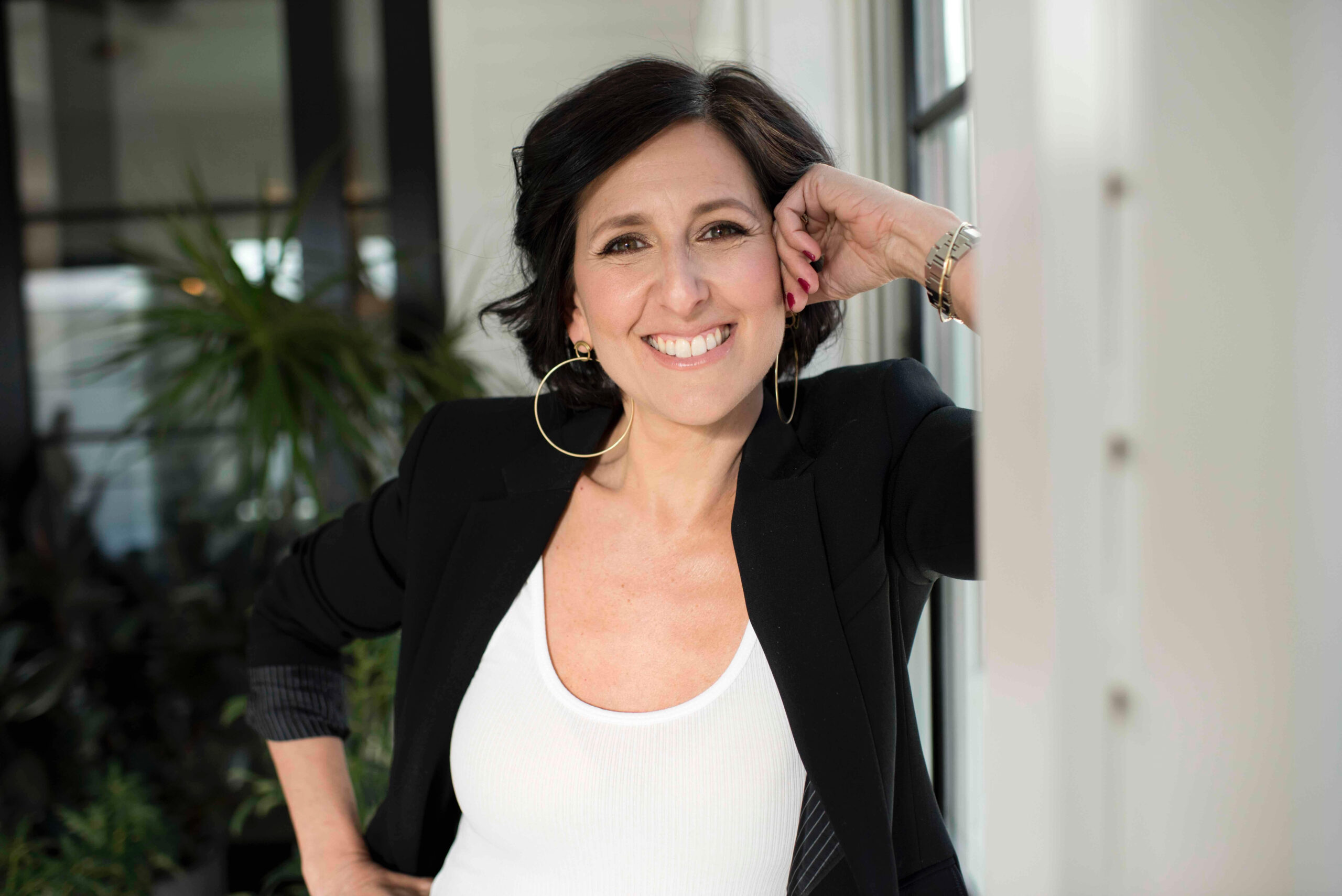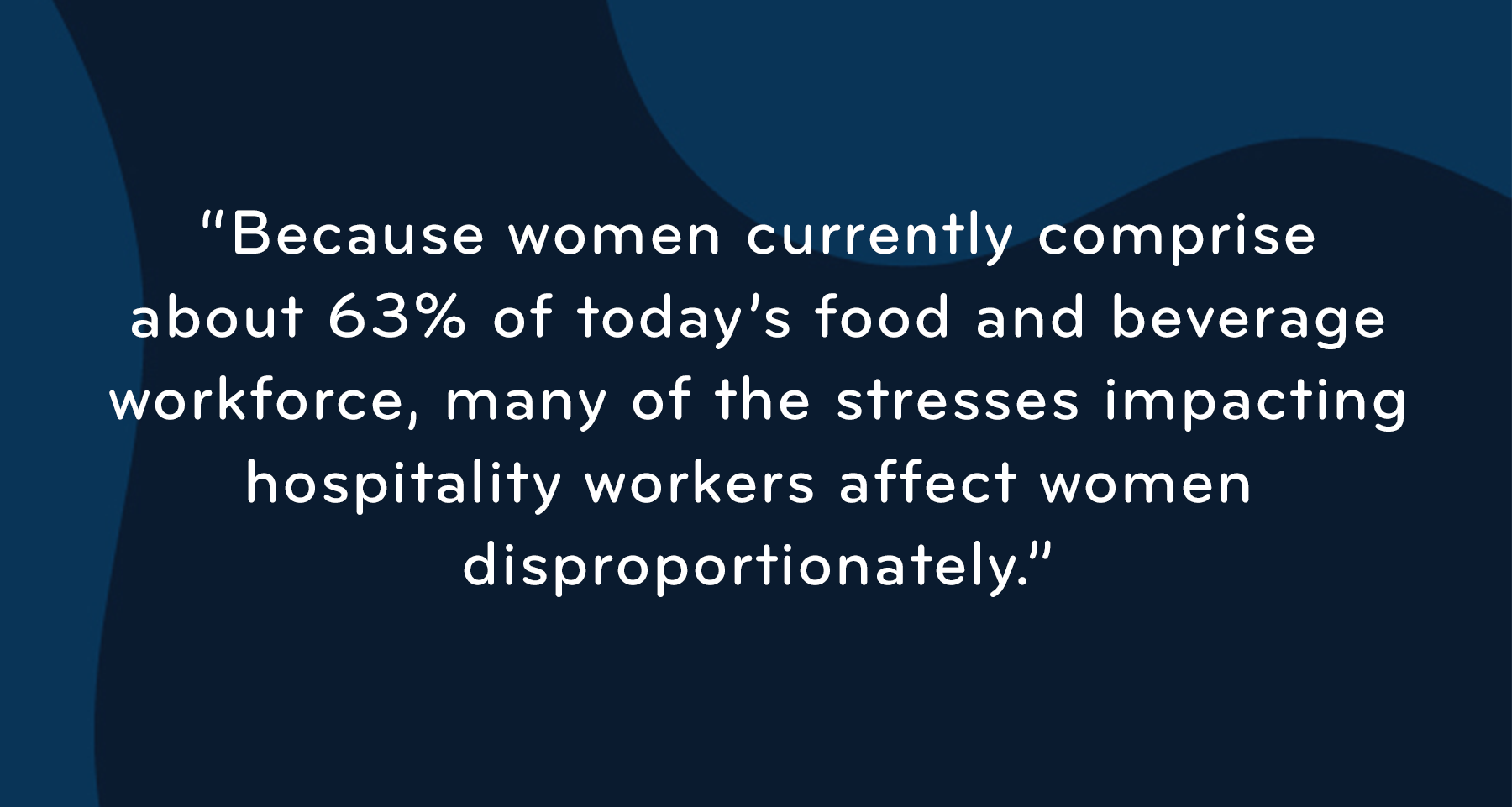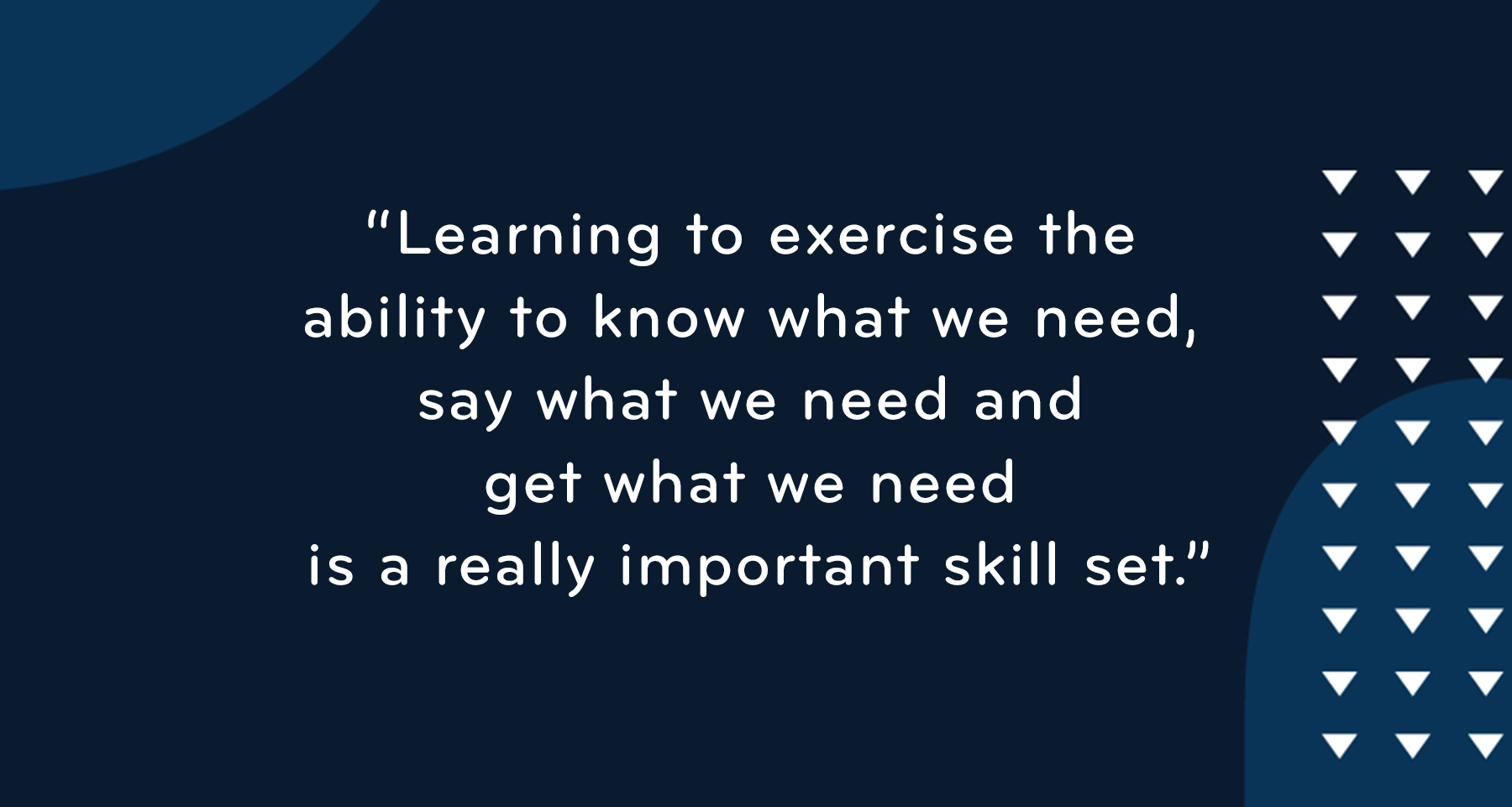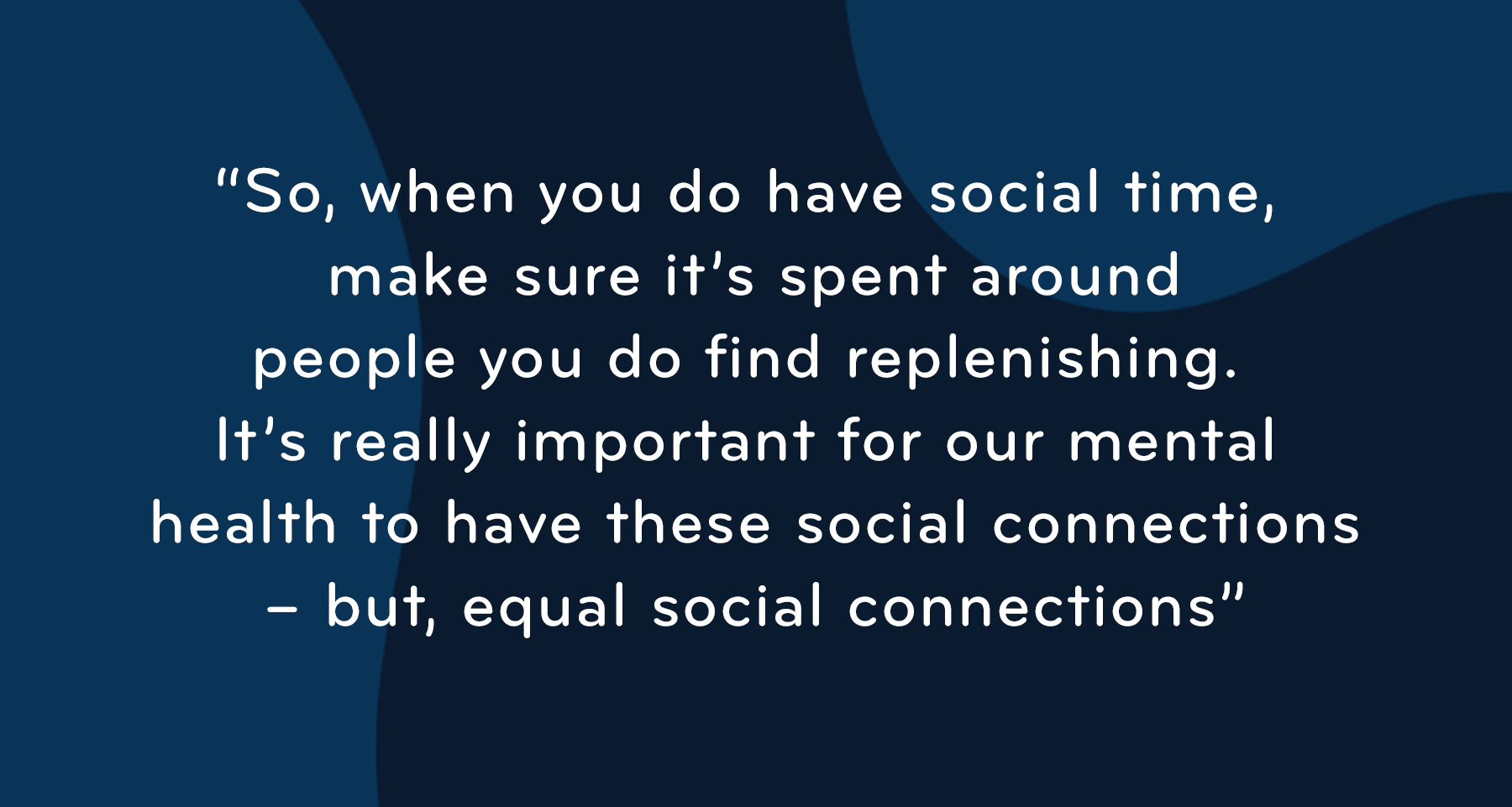
Our Wednesday, March 29 edition of Wellness Hour welcomed Dr. Aviva Romm, M.D., an author, midwife, herbalist, teacher and founder of the Yale Integrative Medicine program at Yale University. Each edition of Wellness Hour focuses on a different health and wellness topic, and Wednesday’s installment featured Alex Jump of Focus on Health, interviewing Dr. Romm about the stresses and occupational hazards faced by physicians and hospitality workers – many of which are surprisingly similar.
Dr. Romm began the discussion by referencing a Pulitzer Prize-winning author and physician who noted that everything he learned about being a good physician, he learned by working as a bartender. Dr. Romm said that she, too, saw parallels between the two seemingly drastically different career paths.
“There’s a deep connection between what happens in hospitality and what doctors do,” she said. “We face a lot of the same burdens – weird work hours, burnout, stressful work environments…”

Many of these stresses impact mental health, as evidenced by the sky-high suicide rates see among physicians. Currently, the suicide rate among male doctors is 70% higher than that of the general population, while the suicide rate among female physicians is 250% higher. Because women currently comprise about 63% of today’s food and beverage workforce, many of the stresses impacting hospitality workers affect women disproportionately.
So, what might doctors, servers, bartenders and other hospitality professionals do to prioritize their own health and wellness and minimize how much their professions impact their mental health?
“In medicine, we’re kind of discouraged from listening to our bodies,” Romm said. “So many of us have little annoying symptoms that we ignore, but when we ignore them long enough, they turn into bigger problems.”
In addition to listening to one’s body, Dr. Romm referenced the importance of learning to listen to our intuition, particularly for women.

“We’re taught not to speak up, and if we do speak up, we’re aggressive, or we’re bitches; all the things that we get called – so I think using our voice is also really important,” she said. “I think that we can find ways to set our boundaries if we are uncomfortable speaking up for ourselves. Learning to exercise the ability to know what we need, say what we need and get what we need is a really important skill set.”
Alex, the interviewer, noted how important doing so is when working in hospitality, whether that means turning down an invitation for drinks after a long workday or saying no when someone asks us to take on an extra shift.
“We think we’re struggling with depression, or we think we’re struggling with anxiety sometimes when what we are actually struggling with is burnout,” Dr. Romm said. “I’m not saying we’re not necessarily struggling with anxiety or depression, but we need to address the burnout.”
She compared the effects of burnout to a toddler’s tantrum, noting that burnout can manifest in numerous ways. It can lead to increased substance use, for one, and it can also exacerbate health problems. Women and mothers working in hospitality may be especially at risk, and Dr. Romm mentioned that she, too, has found herself struggling to juggle work and parenthood.
For example, she’d long resisted having a TV in the home, but upon hearing the advice of one of her midwife clients, she recognized that breaking the rules now and then and allowing her kids to watch limited amounts could help her get some much-needed “me time.”
“The rules were getting in the way of taking care of myself and actually getting the rest I needed,” Dr. Romm said. “Looking back, I don’t think it would have hurt to take time for self-care. I actually think it might have been more beneficial for my kids.”
Dr. Romm also noted how much kids see and emulate the lives of their parents. So, if a parent’s life involves work and fatigue with very little work-life balance, that parent’s child is likely to emulate the same lifestyle later on.
“What do we, as parents, want to model for our children about what adult life really is?” she asked. “We also have to let go of the parenting guilt. There is no ‘one way’ to parent that makes the perfect kid – there’s no such thing as a perfect kid, or a perfect adult.”
While getting enough sleep, eating a healthy diet and exercising regularly can all lead to a better work-life balance, so, too, can figuring out how to combat the isolation many professionals experience when working in medical or hospitality environments.

“We talk to people and we’re there for people all the time….it can be really exhausting,” Dr. Romm said, noting that this causes many professionals to isolate themselves from others. “So, when you do have social time, make sure it’s spent around people you do find replenishing. It’s really important for our mental health to have these social connections – but, equal social connections.”
While establishing and maintaining reciprocal social connections is key, so, too, is taking care of oneself in a physical sense. Exercise, too, is a vital part of maintaining positive mental health. Even a good, vigorous walk is a great way to enhance health and wellness, but Dr. Romm also recommends trying other efforts, such as meditating, hula-hooping, getting outside during a work break or even trying one of the New York Times’ seven-minute workouts.
“It’s the little things that can make a huge difference,” she said.

